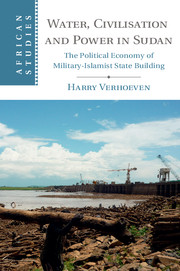

DOHA: Georgetown University in Qatar (GU-Q) is hosting today an open-to-the-public launch of a book, Water, Civilisation and Power in Sudan: The Political Economy of Military-Islamist State Building written by Professor Dr Harry Verhoeven, at 6pm.
The book tells the story of one of the most ambitious state-building projects in the modern era.
Through extraordinary and unprecedented interviews with leading Islamists, business tycoons and security officials, Verhoeven examines a quarter of a century of Sudan’s history through the perspectives of key figures who shaped the region following the Islamic Al-Ingaz Revolution.
Water and agricultural policy have been central to the state-building project of these military-Islamist revolutionaries: The book shows how the gamble to use water and agriculture as a tool to consolidate power is linked to 21st century globalisation, Islamist ideology, and intensifying geopolitics of the Nile.
Going beyond conventional ideas of famine, “water wars” or notions of the resource curse, he stresses different connections between Sudan’s environmental factors, development and political power.
“Despite the fact that people have been talking about the Nile basin region of Africa, which includes Sudan, Egypt and Ethiopia, and how politics link to water in this part of the world, the truth is that most of the descriptions are vague and don’t delve into the internal economic and political networks that shaped the behaviour of individual countries,” said the author. “So the book dissects how power works in the Nile Basin and why water is at the heart of it.” He hopes that the book, available in hardback from Cambridge University Press, can help inform future decisions of policymakers to change what he concludes has been a disastrous paradigm for development in the region for the past 200 years and serve as a reference for regional specialists in political science and resources and development.
The Peninsula








